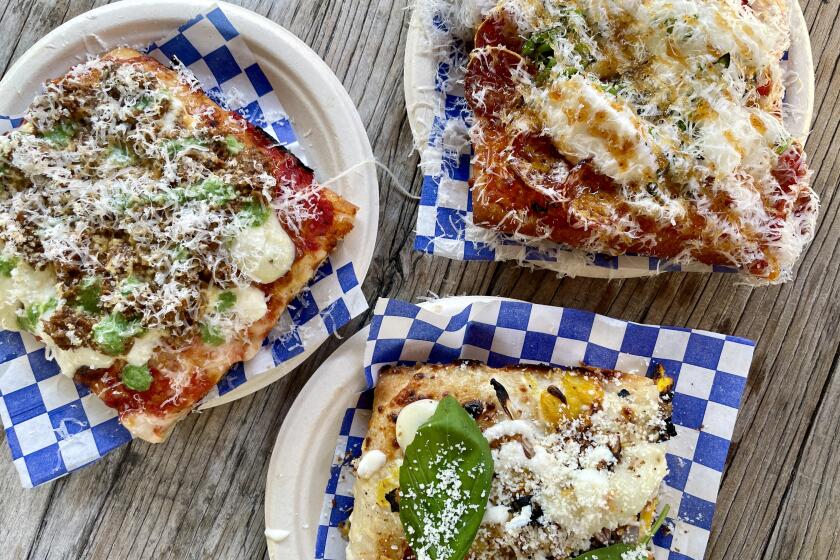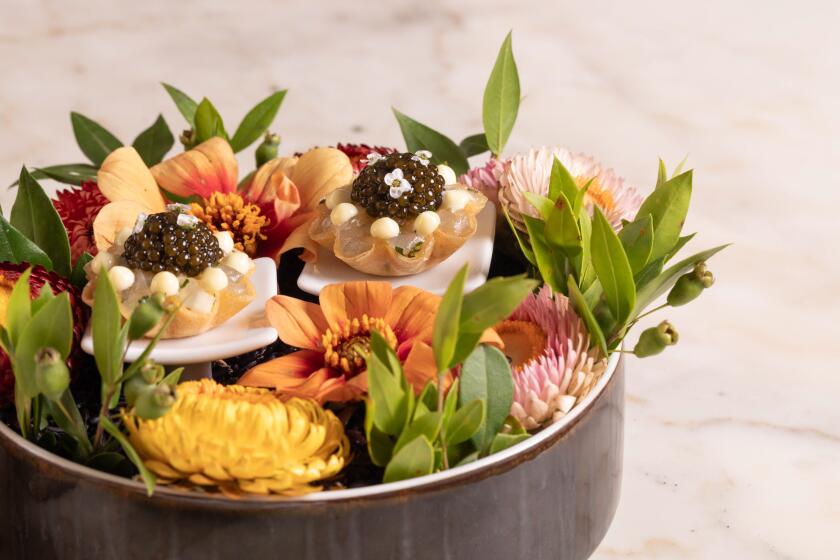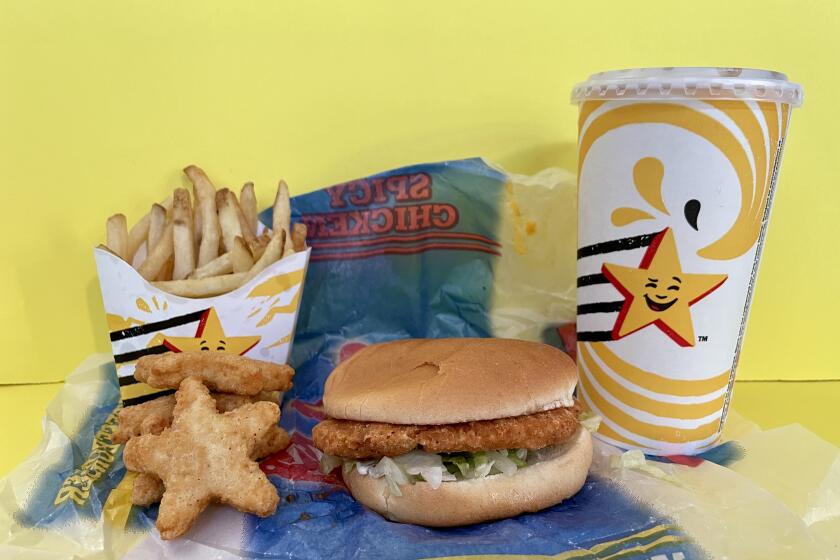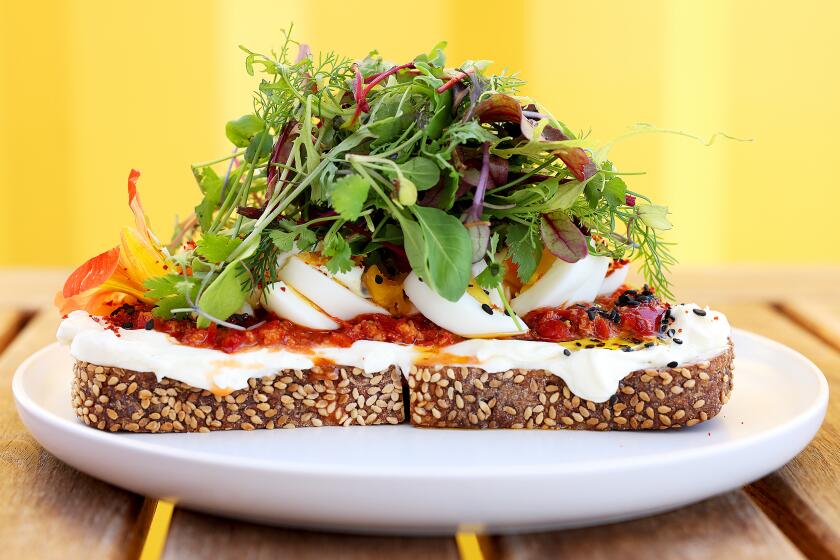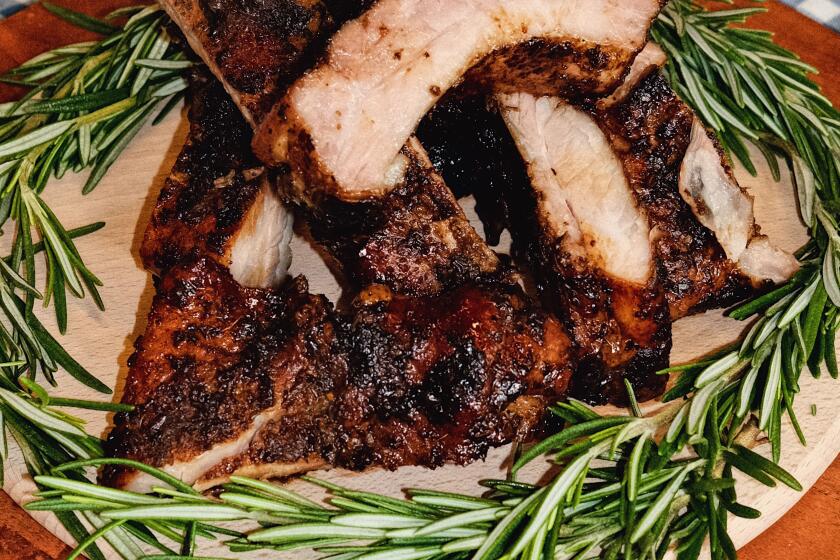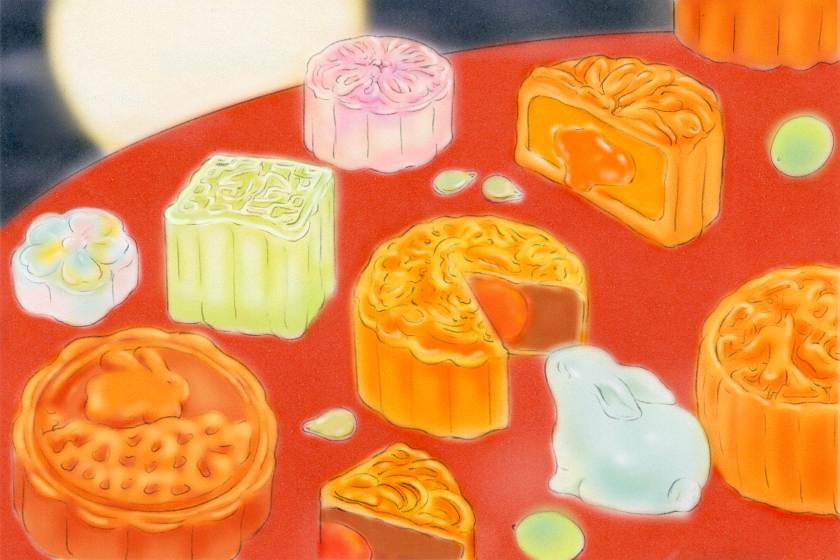Tikiphiles carrying a torch for Trader Vic’s
The iconic high-peaked Polynesian entrance and towering islander totem pole still stand near the corner of Wilshire and Santa Monica boulevards outside the Beverly Hilton Hotel. But Trader Vic’s, the legendary Rat Pack watering hole that helped launch a national tiki-bar craze, has officially been downsized.
Quietly (tiki enthusiasts allege secretively) the restaurant that introduced mai tais to the mainstream closed its doors April 29, prompting howls of protest from L.A.’s community of tikiphiles.
“I say to descend on [Trader Vic’s] en masse and strip it of everything and then burn it down,” wrote one contributor on the Tikicentral Internet message board. “THEN folks would think twice before closing their tiki bars.”
In truth, Trader Vic’s, once considered among Southern California’s top restaurants, isn’t going away completely. A new scaled-down version opened Thursday next to the Hilton pool, offering a limited food menu but some of the same signature cocktails.
“We’re excited about it. We think it’ll introduce Trader Vic’s to a whole new clientele,” said Marie Garvey, spokeswoman for Hilton owner Benny Alagem, who bought the hotel and the property housing Trader Vic’s from Merv Griffin in 2003. “We see it as honoring the restaurant’s past while taking it into the future.”
Plans call for the former Trader Vic’s building and part of the Hilton to eventually be replaced by a new Waldorf Astoria Hotel and two luxury condominium buildings. The project is part of a $500-million expansion of the existing hotel complex.
The community of hard-core tiki enthusiasts is taking the change badly -- seeing it as the end of a much-beloved era. Alagem’s plans were public knowledge and the closure was expected at some point. But many complain bitterly of being blindsided by the sudden move and deprived of the chance for a final old-times-sake mai tai.
Many fans had resigned themselves to the restaurant’s eventual end, but assumed there would be an extended series of events to properly bid it farewell. Hilton officials, however, seemed determined to close the original Vic’s, “under cover of night, with an utter lack of pomp,” wrote a blogger who goes by the name Humuhumu. “Trader Vic’s deserved a full state funeral and a raging wake. Instead it was buried in a cardboard box under an unmarked grave.”
Garvey said the timing of the move was determined by negotiations with the international Trader Vic’s franchise and by sensitivity to longtime employees and their union.
The Beverly Hills Trader Vic’s was a Hollywood hotspot in the ‘50s and ‘60s, attracting show-business royalty and helping spark a nationwide trend in island-themed bars. Dean Martin and his compatriots were regulars, as was Ronald Reagan.
But tiki culture fell on lean times as American trends moved on. Now in the era of sleek lounges, green apple martinis and Red Bull concoctions, the 200-plus-seat restaurant simply wasn’t turning a profit anymore.
“It faced business challenges,” Garvey said diplomatically.
Sven Kirsten, the L.A.-based author of “The Book of Tiki,” tracks the downturn to the counterculture movement of the ‘70s. Young baby boomers rejected tiki bars as emblematic of their parents’ generation.
“The generation gap in the ‘70s was really the death blow to the culture,” he said. “Then the ‘80s were the decade of destruction, when things really bottomed out.”
Tiki experienced a slight revival in the early ‘90s as part of a general retro ‘50s trend that repopularized swing and rockabilly music, Kirsten said.
Hollywood figures associated with Miramax Films often used the bar as a gathering spot and after last year’s Golden Globe Awards, Scarlett Johansson, Kevin Spacey and Sandra Oh drank and danced there.
Meanwhile, the Trader Vic’s brand name continues to endure with more than two dozen franchises from Las Vegas to Beirut. But locally, in the city that invented the genre, the pickings are slim. Kirsten, an admitted “tiki-snob,” said there were only a handful of tiki bars left in the L.A. area.
More to Read
Eat your way across L.A.
Get our weekly Tasting Notes newsletter for reviews, news and more.
You may occasionally receive promotional content from the Los Angeles Times.




